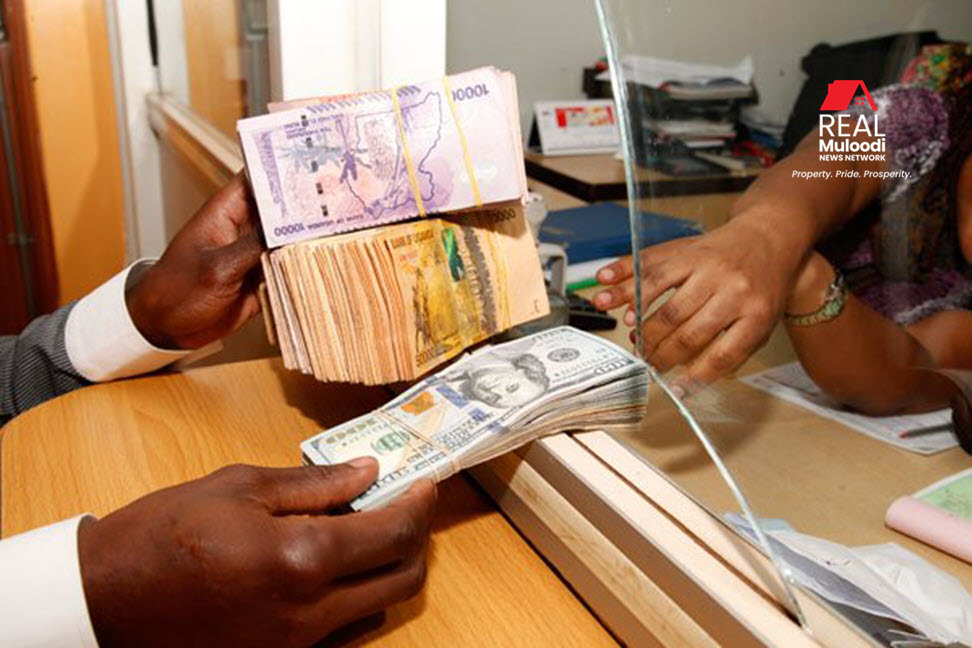UGANDA, Kampala | Real Muloodi News | Currency appreciation is the rise in the value of one currency compared to other currencies. For example, Uganda’s exchange rate has remained relatively stable over the last seven months. Between January and July 2021, the Uganda shilling has appreciated by 3.8 per cent against the US dollar.
Currency appreciation occurs because of the impact of business activities, trade, interest rates, and monetary policy. Uganda, like any other country, has a currency for foreign exchange to trade.
How Currency Appreciation Works
Currency appreciation in floating exchange rate regimes results from supply and demand in the Forex market. When demand for a currency rises, its value increases, as it does in most markets. When there are more buyers than sellers of a currency at a price point, the exchange rate rises until another seller is found to satisfy the order.
When a currency appreciates, it has many implications for the economy.
In an interview, the deputy governor of the Bank of Uganda, Doctor Micheal Atingi shared his remarks stating, “Relative appreciation pressures exhibited by the shilling have somewhat reduced upward pressures on domestic prices, especially that of imported goods, translating into low and stable inflation.” Indeed, inflation in Uganda has remained low and stable for most of this year with core inflation averaging 3 per cent in the seven months to July 2021, which is below the BoU target of 5 per cent.”
He added that relatively high portfolio investment inflows reflect offshore investor appetite for government securities and rebound in exports.
In addition, low private sector demand for imports and the weakening of the US dollar against other major currencies had strengthened the shilling.
The shilling would stabilize its value to foreign currency-denominated debt, which would improve the debt-to-GDP ratio due to increased domestic output.
Impact of the Ugandan Shilling Appreciation
When a country sells its exports, it also exchanges foreign currency payments for domestic currency.
The continuous international transactions caused by the global financial system and trade cause the exchange rate to rise or fall, depending on supply, demand, and geopolitical events.
Currency appreciation makes imports cheaper because the same amount of local currency can buy more foreign products. Appreciation might also cause domestic production to lose competitiveness in the international market because local products are worth more in foreign currency. Therefore, the appreciation of shilling reduces the competitive advantage of local suppliers for exports. More imports and fewer exports expand the Trade Deficit.
How Do Exchange Rates Affect Real Estate in Uganda?
While the appreciation of the Uganda Shilling hurts exports, the fact that imports become cheaper means imported materials used for housing may become cheaper, which is a boon for property developers. For example, Uganda currently imports about US$362 m worth of steel products.
As for real estate investors, exchange rates mostly affect foreign investors. The Uganda Shilling, having increased value, means it is out performing foreign currencies. Therefore, foreign investors have less purchasing power to buy property. During times such as this, it’s more profitable for foreign investors to sell than to buy real estate assets.
Conversely, if you are looking to buy an investment property in a foreign country, the best time to do so is when your home currency strengthens against the foreign country’s currency. So now may be a good time for you to buy overseas property.
For foreign investors who already own rentals in Uganda, an increase in the Shilling is generally a good thing, as the exchange rate can significantly increase their rental income when converted to their own currency. The downside is, the cost of maintenance, utilities and other charges becomes more expensive.
A strong currency depresses inflation and reduces interest rates. The Bank of Uganda’s benchmark interest rate is at a record low of 6.5%. When interest rates are low, mortgage payments also decrease, with banks lending as low as 17% at the moment. Exchange rates thus have an indirect impact on the interest rate you pay on your mortgage.
According to Mashvisor, the currency value can show the country’s economic stability. Thus, the currency and real estate may grow together.
READ MORE LIKE THIS:



